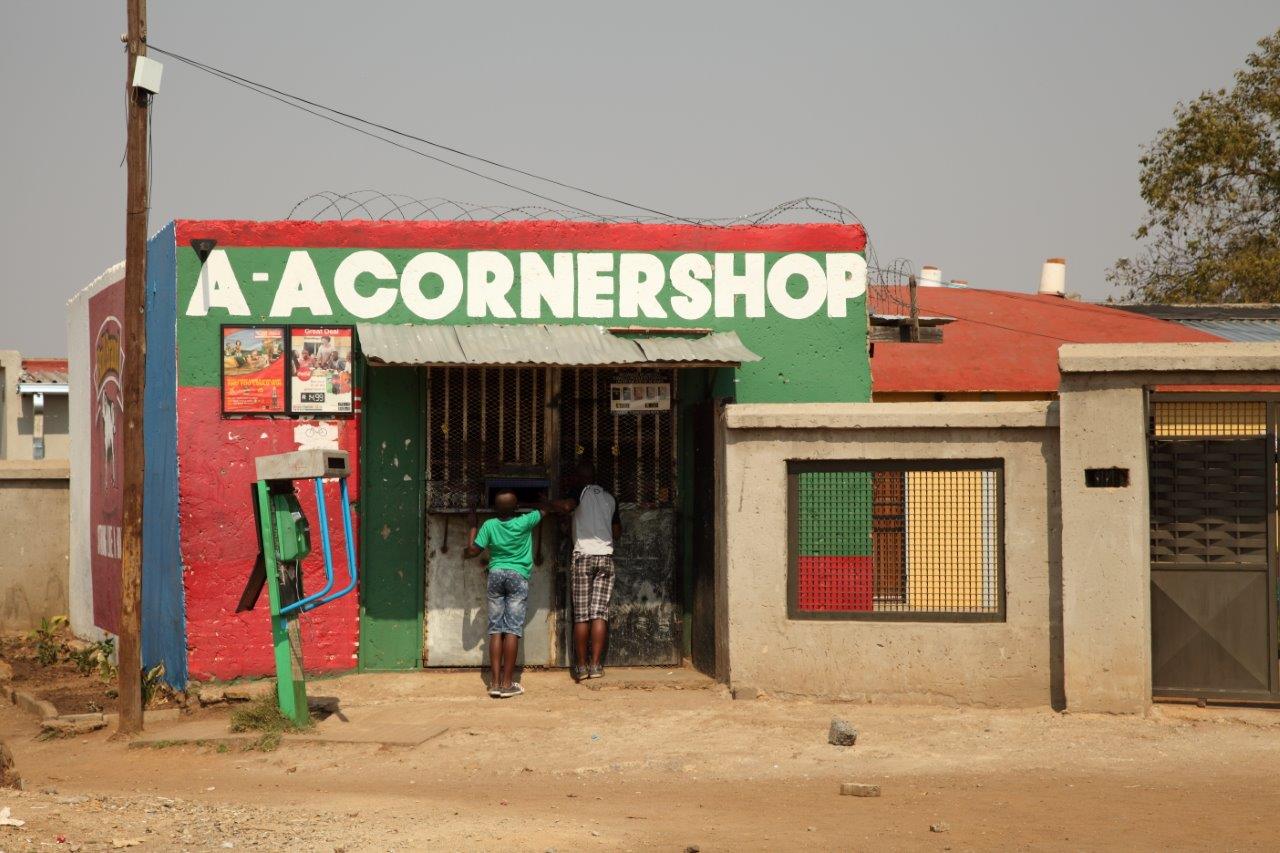Growing up in the 80’s, it was common for low-income households to visit the city once a month to buy their supply of groceries. The corner stores catered for their grocery needs throughout the month. For the business owner, your typical customer was not the most sophisticated. You knew your customers by name and you also knew their children. You had a fairly good idea on the products they consumed given the limited variety of products sold in most corner stores.
The role of these businesses went beyond grocery supplies. They were known as places where locals would hangout and socialize. Families with no cash could get their supplies on credit and pay at a later stage. Most importantly, the owners of these businesses contributed to charity initiatives in the respective communities. It was common for these business owners to sponsor local soccer teams or other community initiatives. They invested in the communities where they were doing their business.
Fast forward to the first decade of the 21st century and the world is very different. Many of these businesses are shutting down or operating as hand-to-mouth businesses. They are faced with major challenges including serious competition and changing customer needs. Given the growth of the middle class in many communities, the buying power of consumers has also improved significantly. Consumers are much more affording and mobile. They can go wherever they want to get goods and services. Many economists predict the continued growth of the middle class in the developing world.
The anticipated growth of the middle class and its associated buying power has also caught the attention of big retailers. As they search for growth in saturated markets, big retailers are encroaching the space that was traditionally dominated by corner stores. It is common practice to find big retailers partnering with gas stations to increase their geographic footprint closer to the communities served by corner stores. The mushrooming of shopping malls also brings the competition right to the doorstep of corner stores. These retailers are running sophisticated supply chain systems that make them more efficient. Unless corner stores re-invent themselves, their chances of survival are fairly slim. The demise of corner stores will not only affect employment in the communities where they operate. It will further entrench the economic exclusion of small business owners.
Our hypothesis is that the implementation of smartphone-based technology to streamline business activities in corner stores can change the game. Many corner stores continue to use notebooks and old school cash registers to record business activity. These outdated methods make it impossible to drive efficient inventory management. Deriving any data analytics to inform product mix and understanding customer buying patterns is impossible. The decreasing costs of smartphones present an opportunity to introduce efficient but affordable technology to streamline business activities.
The key differentiator of smartphones is mobility, ability to connect to the data network and harvesting of location information. These attributes present an opportunity of introducing aggregation in the supply chain activities of corner stores. Using data connectivity, the sales activities of these businesses can now be captured in a common cloud database. The location information harvested from the GPS modules in smartphones can be used to identify businesses that operate in the same vicinity. These businesses can be encouraged to form co-operatives that will buy inventory on behalf of the affiliated members. The bulk buying of inventory will improve the bargaining power and improve price competitiveness.
In addition to facilitating aggregation, implementation of technology can also improve the customer experience. Analytics of customer buying patterns will inform the procurement of inventory items that meet customer needs. Businesses will be able to keep the right levels of inventory and remove products that are slow movers. Armed with the right technology, corner stores can also participate in the on-demand economy. Customers can place orders on their smartphones and have goods delivered at their homes. Upfront orders can also be submitted and customers just collect the product from the corner store without wasting time standing on long queues. The introduction of sophisticated loyalty programmes can also be realized thus improving customer retention.
Finally, the introduction of technology can also enable the creation of ecosystems that revolve around the corner store. Local producers can be connected to the corner stores and they can monitor inventory levels of their products sold at the corner stores in real time. Owners of corner stores can send electronic orders to local producers and connected delivery services can collect the goods from the producers and deliver at the corner store. These connected ecosystems can drive economic growth in the respective communities thus ensuring sustainability of local businesses.
View Busi’s paper presented as part of a symposium on inclusive growth hosted by the Center for International Development at Harvard University in collaboration with the World Economic Forum’s Global Agenda Meta-Council on Inclusive Growth and the MasterCard Center for Inclusive Growth with the goal of finding sustainable and scalable solutions to foster inclusive growth.
Solutions to Inclusive Growth: Entrepreneurs Present Ideas
One of the biggest questions the development community faces is how to create inclusive growth. The Center for International Development at Harvard University is collaborating with the World Economic Forum’s Global Agenda Meta-Council on Inclusive Growth and the MasterCard Center for Inclusive Growth to tackle this issue.
In a symposium held at Harvard in September, entrepreneurs gathered to share their ideas. From new corner store models, to a youth development accelerator to crowdsourced delivery systems in urban centers across Africa, the group discussed ways to improve growth.

